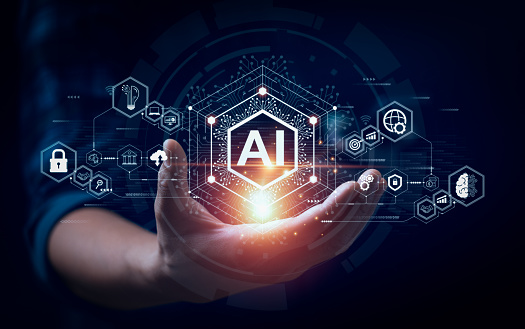How AI is Transforming the ICT Landscape
Introduction
How AI is Transforming the ICT Landscape: Artificial Intelligence (AI) is revolutionizing the Information and Communication Technology (ICT) landscape, driving innovation and reshaping industries. From automating mundane tasks to enabling advanced data analytics, AI technologies are transforming how businesses operate, interact with customers, and deliver value. This article explores the significant ways in which AI is impacting the ICT sector and the potential it holds for the future.
1. Automating Routine Tasks and Processes
Overview: One of the most significant impacts of AI in ICT is the automation of repetitive and time-consuming tasks. AI-powered tools and systems can perform these tasks with greater speed and accuracy than humans, freeing up valuable time for employees to focus on more strategic activities.
Applications:
- Robotic Process Automation (RPA): RPA uses AI to automate rule-based tasks, such as data entry, invoice processing, and customer support. This reduces errors and increases efficiency.
- IT Service Management: AI-driven chatbots and virtual assistants can handle basic IT support queries, troubleshoot issues, and provide solutions, reducing the workload on IT support teams.
2. Enhancing Data Analytics and Decision-Making
Overview: AI enables advanced data analytics, helping businesses derive actionable insights from vast amounts of data. AI algorithms can analyze data patterns, predict trends, and provide recommendations, enabling more informed decision-making.
Applications:
- Predictive Analytics: AI models can predict future outcomes based on historical data, helping businesses forecast demand, optimize supply chains, and improve customer retention strategies.
- Natural Language Processing (NLP): NLP technologies analyze unstructured data, such as social media posts and customer reviews, to gauge sentiment and identify trends.
3. Improving Cybersecurity

Overview: As cyber threats become more sophisticated, AI plays a crucial role in enhancing cybersecurity measures. AI-powered systems can detect, prevent, and respond to cyber threats in real time, providing a proactive approach to security.
Applications:
- Threat Detection: AI algorithms can identify unusual patterns of behavior that may indicate a cyberattack, such as anomalies in network traffic or unauthorized access attempts.
- Fraud Prevention: AI can analyze transactions and detect fraudulent activities, protecting businesses and customers from financial losses.
4. Personalizing Customer Experiences
Overview: AI is transforming customer service and marketing by enabling personalized experiences. By analyzing customer data, AI can deliver tailored content, product recommendations, and support, enhancing customer satisfaction and loyalty.
Applications:
- Chatbots and Virtual Assistants: AI-powered chatbots can provide instant support, answer queries, and guide customers through their journey. They can also offer personalized product suggestions based on user preferences.
- Recommendation Systems: AI algorithms analyze user behavior and preferences to suggest relevant products, services, or content, increasing engagement and sales.
5. Facilitating Digital Transformation
Overview: AI is a key driver of digital transformation, enabling businesses to innovate and adapt to changing market conditions. AI technologies can streamline operations, improve customer experiences, and create new business models.
Applications:
- Smart Automation: AI can optimize business processes, such as inventory management and logistics, by predicting demand and automating workflows.
- Augmented Reality (AR) and Virtual Reality (VR): AI enhances AR and VR experiences by providing real-time data and contextual information, improving training, and customer engagement.
6. Advancing Natural Language Understanding
Overview: AI’s natural language understanding capabilities are improving communication between humans and machines. This has applications in customer service, content creation, and more.
Applications:
- Voice Assistants: AI-powered voice assistants like Amazon Alexa, Google Assistant, and Apple Siri can understand and respond to voice commands, making it easier for users to interact with technology.
- Language Translation: AI-driven translation tools can instantly translate text and speech, breaking down language barriers in communication.
7. Enabling Smart Cities and IoT
Overview: AI is integral to the development of smart cities and the Internet of Things (IoT). AI can analyze data from connected devices and sensors to optimize urban infrastructure and services.
Applications:
- Smart Traffic Management: AI algorithms can analyze traffic patterns and optimize traffic flow, reducing congestion and improving safety.
- Energy Management: AI-powered systems can monitor and manage energy usage in real time, enhancing efficiency and reducing costs.
Conclusion
AI is profoundly transforming the ICT landscape, offering new possibilities for automation, data analytics, cybersecurity, customer personalization, and more. As AI technologies continue to evolve, their impact on the ICT sector will only grow, driving innovation and reshaping how businesses operate and interact with customers. Embracing AI is essential for organizations looking to stay competitive and leverage the full potential of digital transformation.






